Introduction:
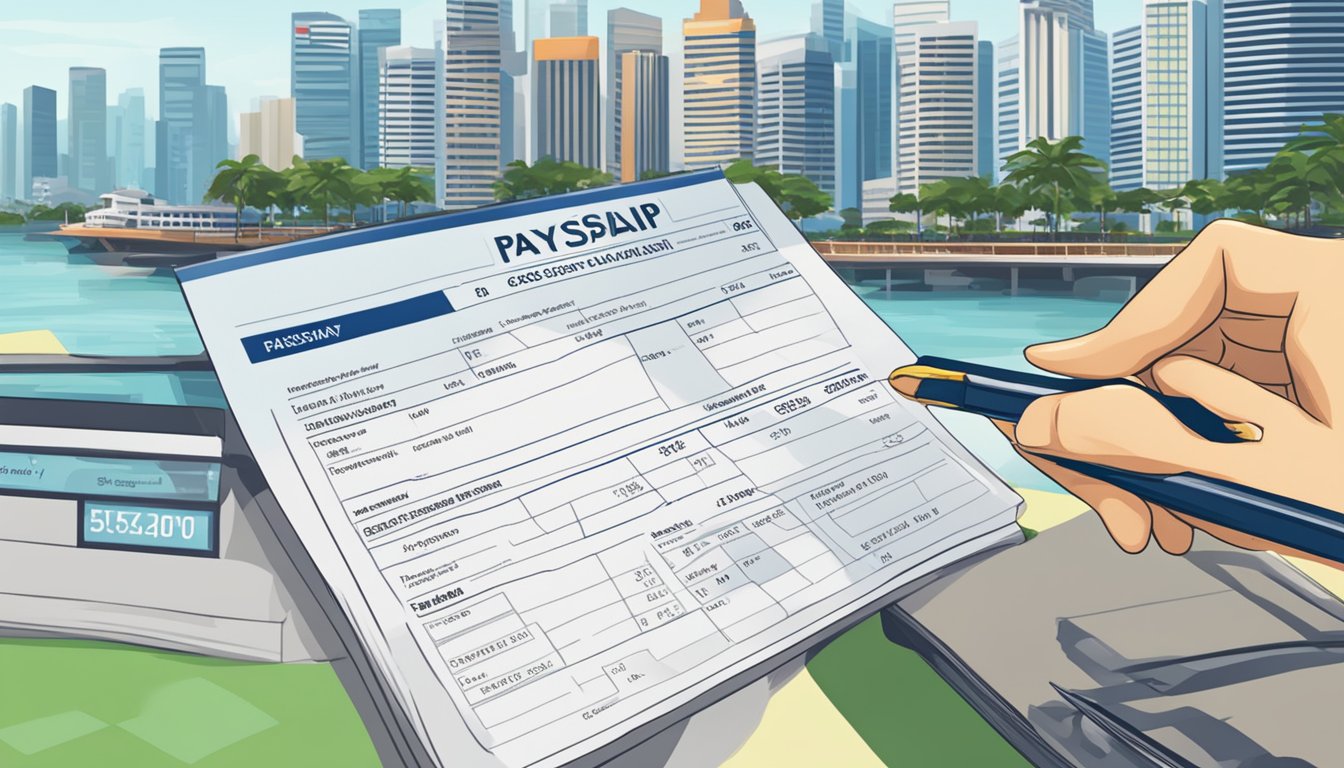
Are you curious about how gross salary works in Singapore? Understanding gross salary is crucial for both employers and employees, as it forms the basis for determining take-home pay, income tax, and employee benefits. In this article, we will explore the legal framework governing salaries in Singapore, income tax and gross salary, salary trends and statistics, and employee benefits and compensation.
Understanding Gross Salary in Singapore:
Gross salary is the total amount of pay an employee receives before any deductions such as income tax, CPF contributions, and other employee benefits. In Singapore, the Employment Act governs the minimum terms and conditions of employment, including salary payment and deductions. Employers must pay their employees at least once a month and provide itemized payslips that include gross salary, deductions, and net salary.
Legal Framework Governing Salaries:
The Ministry of Manpower (MOM) sets out the legal framework governing salaries in Singapore. The MOM has established guidelines to ensure that employers pay their employees fairly and according to industry standards. The guidelines cover areas such as salary benchmarking, salary negotiation, and salary increments. Employers must also comply with the Tripartite Guidelines on Fair Employment Practices, which prohibit discrimination based on age, race, gender, religion, and other factors.
Key Takeaways:
- Gross salary is the total amount of pay an employee receives before any deductions such as income tax, CPF contributions, and other employee benefits.
- The legal framework governing salaries in Singapore is established by the Ministry of Manpower (MOM) and covers areas such as salary benchmarking, salary negotiation, and salary increments.
- Employers must comply with the Tripartite Guidelines on Fair Employment Practices, which prohibit discrimination based on age, race, gender, religion, and other factors.
Understanding Gross Salary in Singapore

As an employee in Singapore, understanding your gross salary is essential to managing your finances and planning for the future. Gross salary is the total amount of money you earn before any deductions are made, such as taxes and other contributions. In this section, we will explore the components of gross salary and how to calculate it.
Components of Gross Salary
Gross salary in Singapore is made up of several components, including wages, bonuses, and allowances. Wages refer to the basic pay that you receive for your employment, while bonuses are additional payments made to reward good performance or to incentivize employees. Allowances, on the other hand, are payments made to cover specific expenses related to your job, such as transport or housing.
Deductions are also a part of gross salary, which are made to cover taxes, social security contributions, and other mandatory contributions. These deductions are taken out of your gross salary to arrive at your net salary, which is the amount of money you take home after all deductions have been made.
Calculating Gross Salary
To calculate your gross salary in Singapore, you need to add up all the components that make up your salary. This includes your basic pay, bonuses, and allowances. Overtime pay is also included in gross salary if you work more than your regular hours.
To illustrate, let’s say you earn a basic pay of $3,000 per month, receive a bonus of $500, and an allowance of $200. If you worked overtime for 10 hours at a rate of $15 per hour, your gross salary for the month would be:
$3,000 (basic pay) + $500 (bonus) + $200 (allowance) + $150 (overtime pay) = $3,850
It’s important to note that your gross salary is not the same as your take-home pay. Your net salary, which is the amount you actually receive after deductions, will be lower than your gross salary.
In conclusion, understanding your gross salary in Singapore is crucial to managing your finances and planning for the future. Knowing the components of your salary and how to calculate it will help you better understand your finances and make informed decisions about your employment.
Legal Framework Governing Salaries
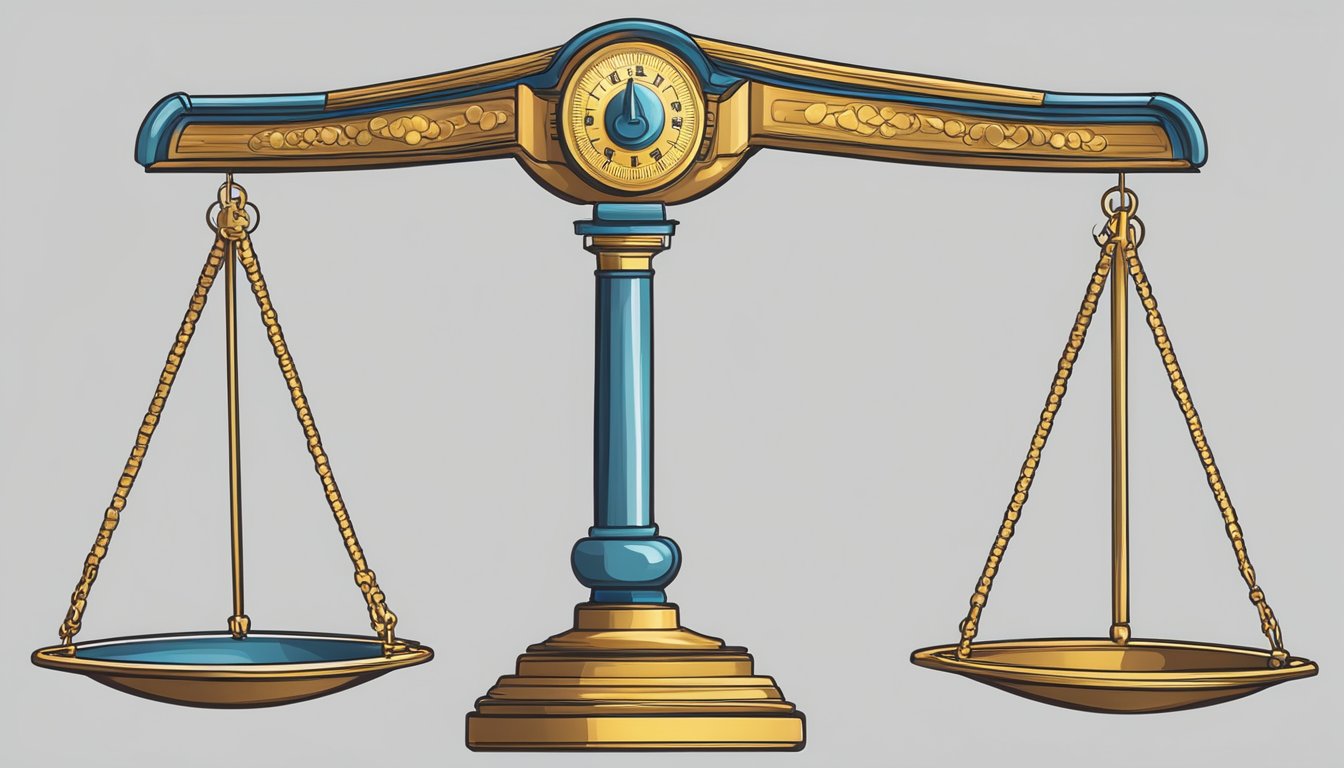
When it comes to gross salaries in Singapore, there are a few key legal frameworks that you need to be aware of. These regulations are in place to ensure that both employers and employees are treated fairly, and that everyone is aware of their rights and obligations. In this section, we will take a closer look at the Employment Act Regulations and CPF Contributions and Obligations.
Employment Act Regulations
The Employment Act is one of the most important pieces of legislation governing employment in Singapore. It covers a wide range of issues, including minimum wage, working hours, leave entitlements, and termination of employment. Under the Employment Act, employers are required to pay their employees a gross salary that meets certain minimum standards. These standards are designed to ensure that employees are able to meet their basic needs and maintain a reasonable standard of living.
CPF Contributions and Obligations
In addition to the Employment Act, employers in Singapore are also required to make contributions to the Central Provident Fund (CPF) on behalf of their employees. The CPF is a social security system that provides retirement, healthcare, and housing benefits to Singaporeans. Employers are required to contribute a percentage of their employees’ gross salaries to the CPF, and employees are also required to make contributions.
The amount of CPF contributions that employers and employees are required to make depends on a number of factors, including the employee’s age and salary. Generally speaking, younger employees and those with lower salaries are required to make lower contributions, while older employees and those with higher salaries are required to make higher contributions.
Overall, the legal framework governing gross salaries in Singapore is designed to ensure that both employers and employees are treated fairly. By understanding your rights and obligations under the Employment Act and CPF regulations, you can ensure that you are receiving a fair and reasonable gross salary that meets your needs and expectations.
Income Tax and Gross Salary
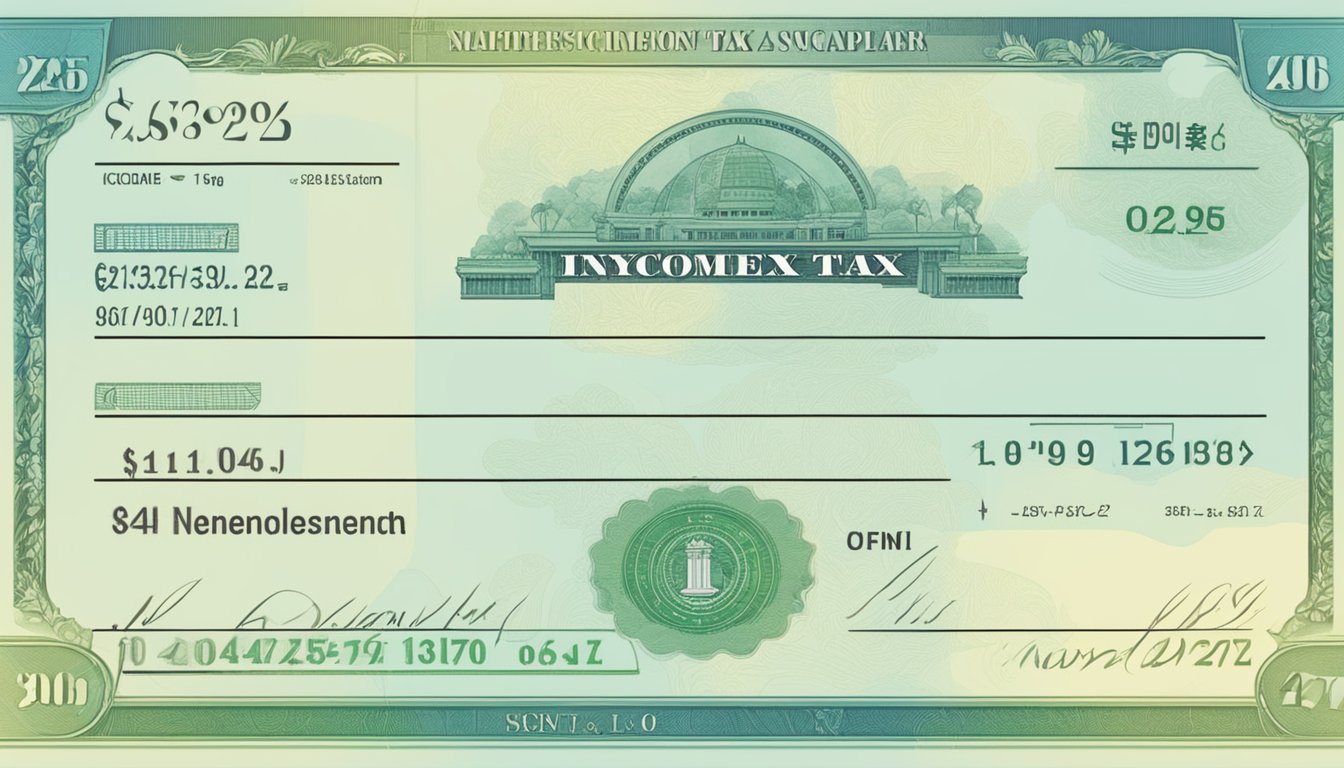
When it comes to gross salary in Singapore, it is essential to consider the impact of income tax. As a resident, you are subject to personal income tax on your gross income, which includes all forms of remuneration such as salaries, bonuses, and allowances.
Personal Income Tax for Residents
The personal income tax rate for residents in Singapore varies from 0% to 22%, depending on your income. For instance, if your taxable income is less than or equal to $20,000, you are exempt from paying income tax. However, if your taxable income is more than $320,000, you are subject to a tax rate of 22%.
It is worth noting that Singapore citizens and permanent residents are subject to the same income tax rates. Additionally, if you are a foreigner who has been living and working in Singapore for at least 183 days in a calendar year, you are considered a tax resident and are subject to the same personal income tax rates as locals.
Tax Deductions and Allowances
Singapore’s tax system provides various tax deductions and allowances to reduce the tax burden on individuals. Some common tax deductions include employment expenses, donations, and contributions to approved pension and provident funds.
Moreover, Singapore’s tax system provides various tax allowances, including housing allowances, to reduce the taxable income of individuals. For instance, if you are a Singapore citizen or permanent resident, you may be eligible for the Home Ownership Scheme (HOS) or the Public Rental Scheme (PRS), which provide housing allowances to eligible individuals.
In conclusion, understanding the impact of income tax on your gross salary is crucial when working in Singapore. By familiarizing yourself with the personal income tax rates, tax deductions, and allowances, you can better manage your finances and reduce your tax burden.
Salary Trends and Statistics
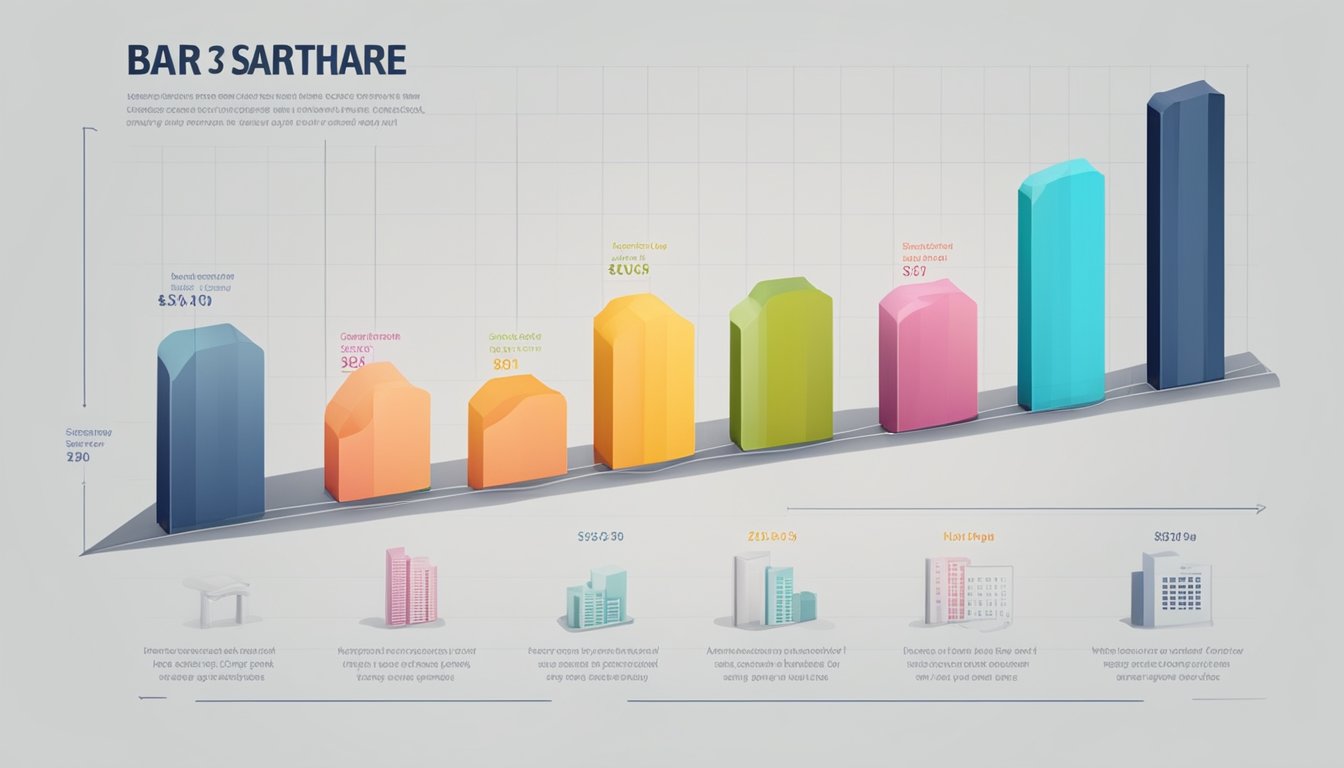
Median Gross Monthly Income
If you’re curious about the median gross monthly income in Singapore, you’ll be pleased to know that the Ministry of Manpower (MOM) provides regular statistics on this topic. According to the latest data, the median gross monthly income from employment (including employer CPF contributions) of full-time employed residents in Singapore was $4,563 in 2023. This is a slight increase from the previous year, which saw a median gross monthly income of $4,500.
Annual Wage Changes and Analysis
The annual wage changes in Singapore are also worth noting. The Singapore Yearbook of Manpower Statistics 2023 shows that the median gross monthly income (including employer CPF contributions) of full-time employed residents increased by 1.4% in 2023. This is a slower rate of growth compared to the previous year, which saw a 3.2% increase.
It’s important to note that these statistics are compiled by the MOM and the Singapore Department of Statistics. While they provide a good overview of the labour force in Singapore, they should be taken with a grain of salt. Factors such as industry, job type, and experience can all impact an individual’s gross monthly income.
Overall, the statistics department in Singapore provides a wealth of information on gross monthly income and wage increases. If you’re interested in learning more about the labour force in Singapore, be sure to check out their latest data.
Employee Benefits and Compensation
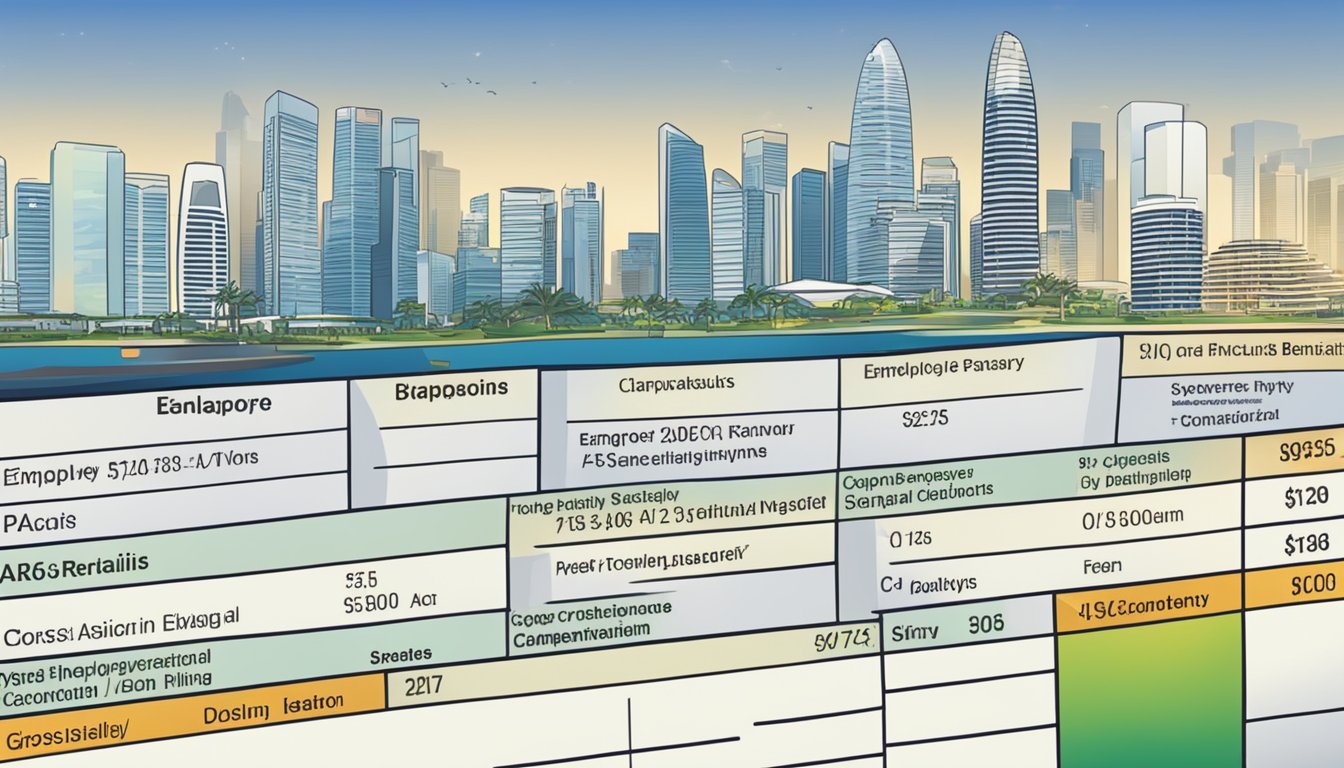
As an employee in Singapore, you are entitled to various benefits and compensation packages that ensure your financial stability and well-being. These benefits are usually included in your employment contract and can vary depending on your employer and job position.
Standard Benefits Offered
Most employers in Singapore offer standard benefits such as annual leave, public holidays, maternity leave, and training opportunities. Annual leave is usually between 14 to 21 days, while public holidays are 11 days in total. Female employees are entitled to 16 weeks of maternity leave, while male employees are entitled to one week of paternity leave.
Training opportunities are also provided by most employers, which allow you to enhance your skills and knowledge in your area of expertise. This can help you to advance in your career and increase your earning potential.
Additional Compensation
In addition to standard benefits, employers in Singapore also offer additional compensation packages, including gross salary, which includes allowances, bonuses, and other benefits. Gross salary provides transparency to employees about the total compensation they receive for their work. It ensures that employees understand the full value of their employment package, including not only their base salary but also allowances, bonuses, and other benefits.
Other additional benefits can include medical insurance, dental insurance, and retirement plans. These benefits can help you to manage your finances and plan for your future.
Overall, as an employee in Singapore, you can expect to receive a comprehensive benefits and compensation package that ensures your financial stability and well-being. With the right combination of standard benefits and additional compensation, you can enjoy a fulfilling career and a comfortable lifestyle.
Frequently Asked Questions

How can one determine their monthly gross income in Singapore?
To determine your monthly gross income in Singapore, you need to add up all the components of your salary that are not subject to deductions. These components may include allowances, bonuses, and other incentives. Once you have added up all the components, you will have your gross income for the month.
What components are included in calculating the gross salary?
The components that are included in calculating the gross salary in Singapore are the basic salary, overtime pay, bonuses, and allowances. Other components may also be included, depending on the company’s policies.
What distinguishes gross salary from basic salary in the Singapore context?
The basic salary is the fixed amount that an employee is paid for their work, while gross salary is the total amount of money an employee earns before any deductions and taxes are applied. The gross salary includes all the components of the salary that are not subject to deductions.
How does the Central Provident Fund (CPF) affect gross salary computation?
The Central Provident Fund (CPF) is a mandatory savings scheme for Singaporean employees. Both employers and employees are required to contribute to the CPF. The employee’s contribution to the CPF is deducted from their gross salary, which means that the CPF affects the computation of gross salary.
What are the steps to calculate your gross salary using an online calculator?
To calculate your gross salary using an online calculator, you need to enter the components of your salary, including your basic salary, overtime pay, bonuses, and allowances. The online calculator will then compute your gross salary based on the inputs you have provided.
Is SGD 3,500 considered a competitive salary in Singapore?
The competitiveness of a salary in Singapore depends on various factors, such as the industry, job role, and level of experience. SGD 3,500 may be considered a competitive salary for some job roles and industries, while it may not be competitive for others. It is best to research the average salary for your specific job role and industry before determining whether your salary is competitive or not.




